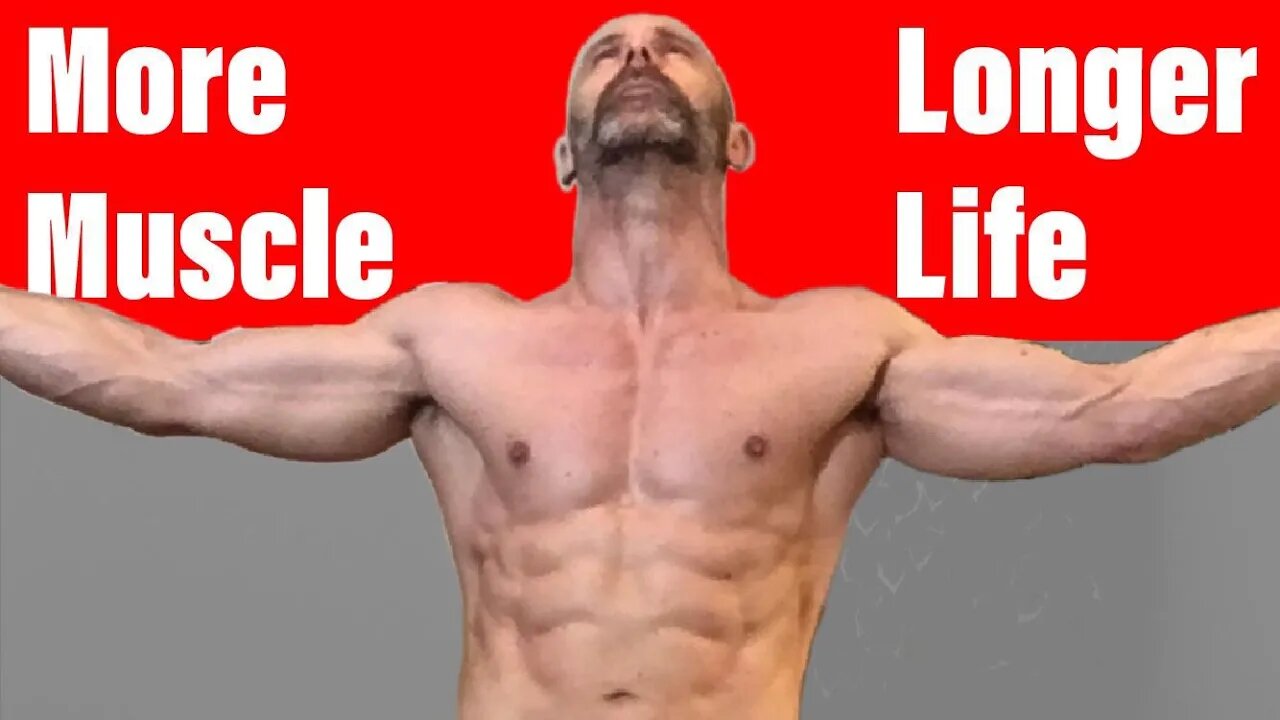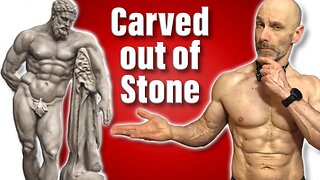Premium Only Content

Anti-aging Effect Of Reversing Lean Muscle Loss over 50
Anti-aging Effect Of Reversing Lean Muscle Loss over 50
At first we don’t even notice it happening. It starts in our 30’s. By our 40’s we know it is happening and in our 50’s many feel it is too late. But I assure you it’s not too late. To reverse the lean muscle loss that gradually started for most of us back in our 30’s. We can get fit and build muscle at any age.
Having muscle is important and it is about much more than just vanity. They did a study that spanned 16 years on over 3,000 people over the age of 55. They determined their body composition and used it to figure out their muscle mass relative to their height. Which is called the muscle mass index. And what they found is those with the greatest amount of muscle mass over all lived the longest and when compared to BMI or the body mass index, it was a far more accurate predictor of longevity.
What they didn’t do is make a connection as to why having more lean muscle mass leads to greater longevity. That is what we are going to look at today. The anti-aging effect of lean muscle mass.
If you are interested in losing body fat and adding muscle, please email me at 1shark1bite@gmail.com for information on my personal training services.
Facebook; https://www.facebook.com/Fit-and-50-548844435514900/
My Amazon page link; https://www.amazon.com/shop/fitand50
My Affiliate link to Lebert for their Equalizer bars and more; http://www.easywebautomation.com/app/?af=1679568 and use the discount code LFI20 you will receive 20 dollars off your purchase.
The anti-aging effect of reversing lean muscle loss over 50
Having more muscle helps us to ward off obesity and obesity related diseases. Your muscles are a calorie burning furnace increasing your resting metabolic rate and enabling you to do more work when active, which in turn burns even more calories. I have experienced this in my own life when I first started to get into shape at 45 years of age, I had to eat under 2,000 calories a day to lose body fat. Nowadays at 53 I’m approaching 3,000 calories a day just to maintain my lean body mass. This is a result of slowly increasing my muscle mass over those 8 years of training.
Increased skeletal muscle also improves our insulin sensitivity. One of the things our muscles do is to take glucose from our bloodstream and store it as glycogen this protects us against insulin resistance. In a study involving over 13,000 individuals they found that people with higher muscle mass relative to their body size had better insulin sensitivity and a lower risk of pre or overt diabetes.
Amino acids play an important role in our immune system function and are used to synthesize new cells, proteins and peptides that our immune system uses to mobilize and respond to different pathogens and other toxic compounds in the body. The only place in our body that can supply these amino acids is from our muscles. So a lack of lean muscle mass could leave are immune system weakened with a suboptimal supply.
Muscle helps to reduce the risk of injury not only by helping to stabilize the joints and provide them with a shock absorber effect, but protects them from breaks and dislocations. With the added bonus when we are training our muscles we are not only strengthening our muscles but also our bones, tendons and cartilage. Exercise also helps to improve our balance and coordination which can protect us from falls further reducing our injury risk.
As we add more muscle to our frames basic day to day tasks get easier and easier. Allowing us more energy at the end of the day for the things we want to do. Moving something that weight 100 lbs might seem like a daunting task. But the more muscle you have on your frame the easier it is to do that task not only once but many times over and still have energy left so we can keep working out while having fun.
Muscle Mass Index As a Predictor of Longevity in Older Adults; ://www.amjmed.com/article/S0002-9343(14)00138-7/fulltext
Increased muscle mass may lower risk of pre-diabetes: Study shows building muscle can lower person's risk of insulin resistance; ://www.sciencedaily.com/releases/2011/07/110728082601.htm
-
 4:47
4:47
Fit and 50
1 year ago $0.04 earnedThe Best Way to Choose Exercises for Muscle Growth (Greek god Physique)
5692 -
 1:02:49
1:02:49
The Tom Renz Show
11 hours agoThe Democrats LA Fires & COVID Grand Jury
684 -
 47:49
47:49
PMG
15 hours ago $0.02 earned"There Ain’t No Grace in It! What to do when you’re worn out!"
3551 -
 3:19:06
3:19:06
FreshandFit
6 hours agoAnnoying HOES Kicked Off After HEATED Debate On Rape Culture!
54.2K48 -
 57:00
57:00
PMG
15 hours ago $8.19 earned"Terror Attacks or False Flags? IT DOESN'T ADD UP!!!"
29.5K12 -
 1:14:42
1:14:42
Anthony Rogers
12 hours agoThoughts on the L.A. Fires
49.1K16 -
 2:37:32
2:37:32
Kim Iversen
11 hours agoTerrorism, Act of God or “Newscum” Incompetence: What REALLY Fueled The California Wildfires
69.3K216 -
 2:16:33
2:16:33
Tucker Carlson
9 hours agoTucker Carlson and Michael Shellenberger Break Down the California Fires
224K347 -
 58:50
58:50
Laura Loomer
8 hours agoThe Great Replacement (Full-Length Documentary)
42.2K32 -
 6:01:59
6:01:59
Razeo
8 hours agoEp 31: Finishing March Ridge & onto Muldraugh tonight
43.4K3